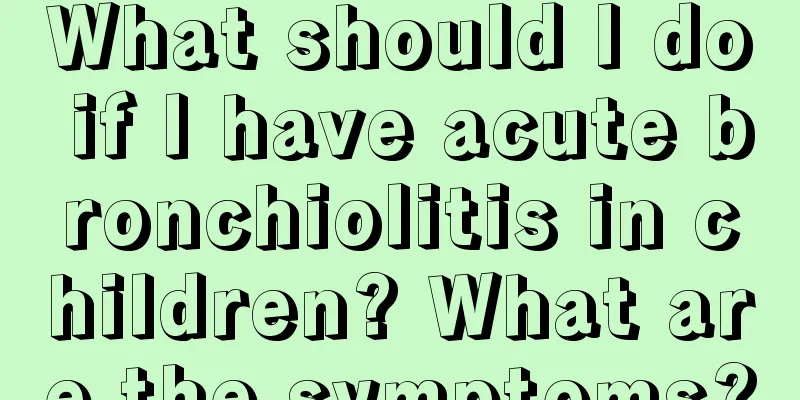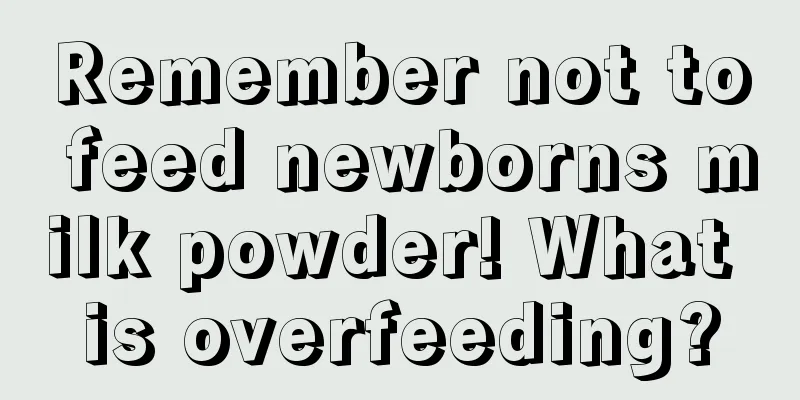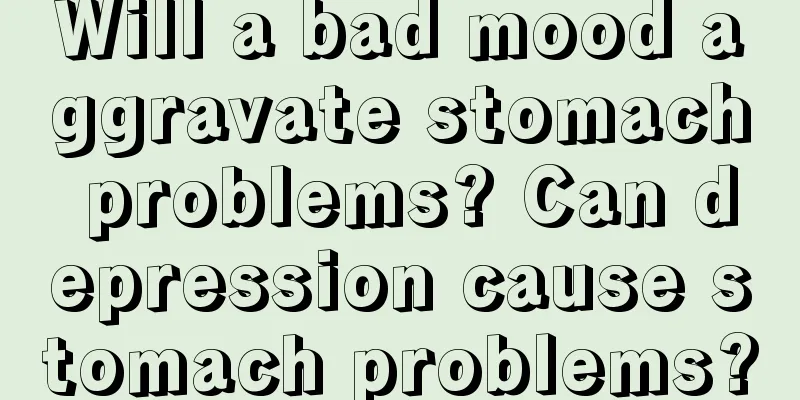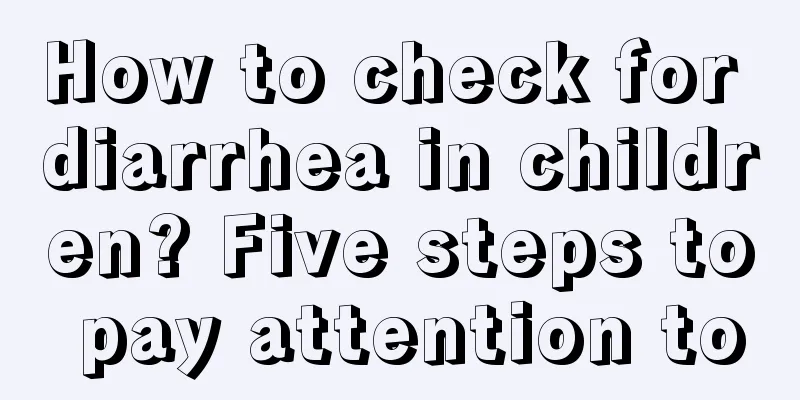What should I do if I have acute bronchiolitis in children? What are the symptoms?

|
As the weather gets colder, various viruses begin to wreak havoc, including influenza, viral gastroenteritis, etc. Recently, the number of children with acute bronchiolitis has been increasing. So what should we do with acute bronchiolitis in children? What are the symptoms? What is acute bronchiolitisAcute bronchiolitis is caused by respiratory syncytial virus infection, which is common in children under two years old. Unlike common bronchitis, this virus mainly invades the bronchioles. Since the diameter of the bronchioles is small, and the infection causes bronchiolar edema and increased mucus and sputum, the bronchioles become blocked, and in severe cases, pneumonia can also occur. What to do with acute bronchiolitis in children1. Pay attention to isolation. Try not to contact other sick children to reduce the chance of secondary bacterial infection.2. Maintain appropriate humidity in the child's room. Use a humidifier when the air is dry.3. Pay attention to replenishing water. Children should drink more warm water and less beverages.4. Control infection. If the child has a bacterial infection or is suspected of having a bacterial infection, antibiotics should be used reasonably, mainly orally.Is acute bronchiolitis contagious?This virus is mainly transmitted through droplets or hands touching the mouth and nose after the virus comes into contact with the virus. The incubation period is about one week. The initial symptoms are like those of a common cold, with runny nose, sore throat, cough and fever, etc. However, as the disease progresses and causes airway obstruction, severe coughing, rapid breathing, wheezing and even difficulty breathing will begin. Symptoms of acute bronchiolitis in children1. Increased breathing rate: A one-year-old child breathes about 30 times per minute when asleep. Parents can count how many times the child breathes in about 15 seconds, and then multiply it by 4 to calculate the number of breaths per minute.2. Nose flaring: When you breathe, your nostrils get bigger and smaller, which is one of the signs of labored breathing.3. Changes in respiratory ribs: The outer periphery of the thorax is filled with muscles that assist in breathing. When breathing is labored, these muscles will contract significantly, causing varying degrees of depression.4. There is a hissing sound when breathing: The respiratory tract is blocked and becomes narrow, and a hissing sound occurs when air passes through these narrow gaps.The dangers of acute bronchiolitis in childrenInfantile asthma attacks may also present symptoms similar to those above. Because the lung tissue of newborns is not yet fully developed and their respiratory muscles are relatively insufficient, once severe wheezing and labored breathing begin to occur, respiratory failure or even death may occur.The condition will be more serious for younger babies, premature babies, and babies with congenital heart disease or lung disease, so parents must be vigilant and seek medical treatment as soon as possible if their children show symptoms of difficulty breathing.The disease is mainly transmitted to infants and young children through droplets from adults with mild symptoms. Adults must wash their hands before contacting infants and young children, and please wear a mask if you have any cold symptoms. |
<<: Can babies drink yogurt? When can babies drink yogurt?
>>: How to treat retinopathy of prematurity and what causes it
Recommend
The correct way to prepare milk powder for your baby The correct way to prepare milk powder
Making milk powder is a very common thing, but in...
Is Ariel laundry detergent a neutral laundry detergent? Is Ariel laundry detergent a low-foaming one?
So-called laundry detergents are also divided int...
How can I get pregnant quickly? What should I do after I get pregnant?
Although many women have reached childbearing age...
How to teach your baby to walk? Parents should not rush
Many mothers are envious when they see other peop...
How to eliminate the fear of childbirth in pregnant women
People will feel fear when facing unknown things,...
What should I do if my baby is grumpy when waking up? Why do children get grumpy when waking up?
Every day before I wake my child up, I see an ang...
How parents can be good role models for their children
The family is where children grow up. Parents sho...
Is it useful to drink raspberry tea in late pregnancy? The benefits of drinking raspberry tea for pregnant women
Raspberry tea has a good effect on regulating men...
Children's reading enlightenment: 6 skills to help you advance smoothly
If a child's interest in reading is not estab...
Can humidifiers cause respiratory diseases? What are the benefits of humidifiers to the body?
Although humidifiers are good for the human body,...
Can children's rhinitis cause fever? Can children's rhinitis cause headaches?
Rhinitis may not seem to be a very serious diseas...
What to do with gynecological inflammation during lactation? Can gynecological inflammation be cured during lactation?
Many pregnant women do not receive good postpartu...
What to do if the wound itches after cesarean section? How to care for the wound after cesarean section
Many people experience itching during the healing...
What should pregnant women eat to increase milk production? What should pregnant women eat to increase milk production quickly?
Many mothers start to worry about their breast mi...
What should I do if I lose my hair after giving birth? What are the reasons for losing hair after giving birth?
Many mothers lose a lot of hair after giving birt...









